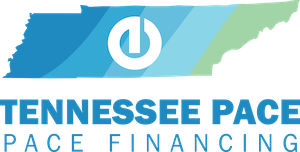PACE Explained for the Commercial Property Owner
What type of properties qualify?
Any privately-owned commercial, agricultural, industrial, or multi-family real property of five (5) or more dwelling units located within the boundaries of an active C-PACER District. Note that property owned by not-for-profit organizations such as YMCAs, Houses of Worship, etc. are eligible; even though the not-for-profit typically does not pay standard government property taxes, PACE is simply a voluntary request for a special assessment to be added to the property’s tax roll as the means to repay the PACE loan.
NOTE: Ground leases on eligible properties are permitted, as long as all requirements of the local C-PACER Ordinance are met, including the Property Owner entering into a PACE Special Assessment Agreement. On ground-leased properties, the special assessment and C-PACER Lien encumber the fee interest in the property, not the ground leasehold.
What type of projects qualify?
• New construction or substantial redevelopments (i.e., “gut rehabs”)
• Existing building upgrades and retrofits
• Existing building “refinancing” of qualified improvements (NOTE: 2 year “look back” period from time of completion)
What type of improvements are eligible for PACE in TN?
Energy Efficiency: Decrease energy consumption and demand through the use of efficiency technologies, products, or activities that reduce or support the reduction of energy consumption or allow for the reduction in demand and reduce greenhouse gas emissions
Renewable Energy: Support the production of clean, renewable energy, including but not limited to a product, device, or interacting group of products or devices on the customer’s side of the meter that generates electricity, provide thermal energy, or regulates temperature
Water Efficiency: Decrease water consumption and demand and address safe drinking water through the use of efficiency technologies, products, or activities that reduce or support the reduction of water consumption, or allow for the reduction in demand
Resiliency: Increase water and wastewater resilience, including storm retrofits, flood mitigation, and stormwater management; or wind resistance, energy storage, microgrids, and other resilience projects approved by the local government; also included in this category are Lead-in-drinking water measures along with seismic resiliency measures for new or existing buildings
Why PACE?
Because the private PACE lender has a secure repayment collateral position via the special assessment, there are certain beneficial attributes that are often passed along to the property owner:
Preserved Traditional Credit Lines: for existing building retrofits, most property owners who have utilized PACE financing comment that the #1 value in using PACE is that it preserves their traditional credit lines for non-building capital purposes. For new construction, PACE simply lowers the cost of capital when compared to traditional higher-cost mezzanine or preferred equity capital stack options.
No Down Payment: generally, only a refundable down payment during the underwriting phase would be required, upon the PACE closing the down payment is either returned in full or credited.
No Personal/Business Guarantee: once an approved project finalizes the on-site installations, the “guarantee” required by the PACE lender is the special assessment repayment; PACE is often referred to in the development industry as a “non-recourse” loan because of the special assessment feature.
Fixed Rate / Fixed Payment: most often, the repayment amount is an equal installment with a fixed interest rate; also, in most repayment schedules the first payment can be structured to occur 12 months or more after the PACE closing, therefore, allowing the property owner time to benefit from the improvements before making the first payment (NOTE: capitalized interest will begin accruing from the date of the PACE closing until the first payment date).
Longer repayment terms: because the special assessment has such a unique and strong security feature, most PACE lenders are willing to provide a repayment term as long as the state PACE law allows, which is the maximum useful life of the improvement(s); practically for single improvements like solar, the term would be 30 years but even multiple improvements, which are calculated with a weighted cost average, generally receive 25-30-year terms.
Triple Net Lease “pass-through”: due to the fact that the special assessment repayment is technically an “increase in property taxes” (albeit for only the property owner utilizing PACE), that property owner may choose to share some of the PACE repayment costs with the triple net lease tenants, as the tenants will likely benefit from the reduced energy consumption. NOTE: some hotel operations can utilize the same technique to recoup some of the “clean energy assessment” costs associated with PACE-financed building improvements.
Existing Mortgage Lender “Consent”
As required by the State legislation and local C-PACER programs, any holder of a mortgage or a deed of trust interest in the real property is required to obtain written “consent” from each of the recorded entities prior to PACE closing. The reason is because the C-PACER special assessment will become a recorded C-PACER Lien on the property at closing, thereby placing the C-PACER special assessment “above” the mortgage in the event of a property tax delinquency or foreclosure.


